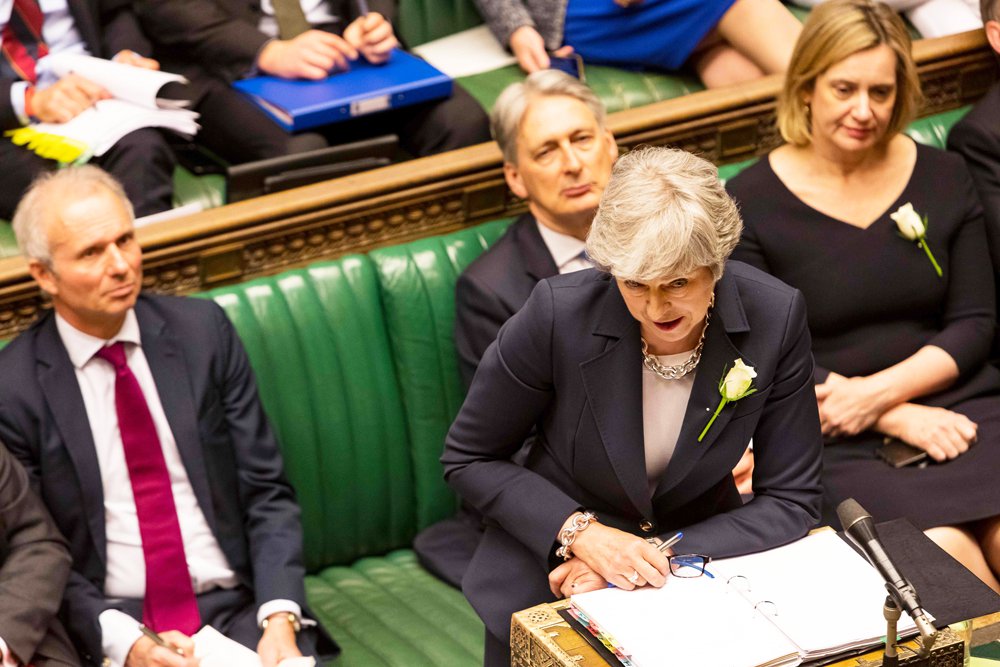Time for May to step aside

For some time it has been clear that British Prime Minister Theresa May is aware her situation is untenable, but increasingly it would seem that she may be stalling her departure. In March, May pledged to stand down if and when Parliament ratified her Brexit withdrawal agreement, noticeably not making clear how long she intends to stay if no deal is reached. Following local elections in which the Conservative party lost more than 1,300 councillors, party grandees and activists alike are concerned that they face a “meltdown” in this month’s European elections should May still be at the helm by June. As the prime pinister negotiates for extra weeks, it is more likely that she will be out in days.
Last week senior Conservatives called for the party to pull together, following its worst results in English local elections since 1995. The Home Secretary Sajid Javid spoke for many when he said “issues of trust” over Brexit had resonated with the electorate, the Justice Secretary went as far as to say that the results were a “punishment” to both the Conservatives and the Labour Party “for failing to find a way through” the Brexit conundrum. The results have now put the Conservative party in a greater bind as they might have to move toward Labour's proposal of a permanent customs union in order to break the impasse in Westminster over Brexit. Though May previously ruled out remaining in a customs union with the EU, her need for support in Parliament has seen her move closer to such proposals. However, negotiations with the opposition have been complicated further as neither side wishes to be seen to be holding up Brexit and the Labour party in particular is weary of coming to an agreement with a prime minister whose days in Number 10 are numbered. Given that independence over trade policy was central to Brexit, the government’s proximity to agreeing to a customs union is indicative of how far it lost ground, considering a deal that would to a large extent prevent the UK from setting its own policies on trade.
The UK was due to leave the EU on March 29, but the deadline has been pushed back to October. In this context, the Conservative party is hurtling toward a very likely protest vote in the European parliamentary elections on May 23, as it is seen as unable to deliver the Brexit it promised. Faced with similar challenges, the greatly unpopular prime minister Tony Blair was able to extend his premiership first by another term, and then by a further year. May, on the other hand, is struggling to extend hers by days. Wednesday was initially set by the influential 1922 executive committee at the heart of the Conservative Party as the deadline for May to provide a timetable for leaving; however, like so many deadlines, it has come and gone with the committee’s chairman now calling for a meeting next week, buying the prime minister more time. Just as when she lost her majority with an ill-judged snap election in 2017, then when leading members of her cabinet resigned, and again when she suffered the worst Commons defeat in 750 years, May has insisted on hanging on. At every juncture where precedent and norm would have suggested she step down, she has insisted on remaining. The resignation of the Defense Secretary last week for leaking details from a top-level National Security Council meeting is illustrative of how ill disciplined her government has become amid a crisis of leadership.
Amazingly, the increasingly out-of-touch premier reacted to the recent election defeat as “a mandate to get on with Brexit,” seemingly completely oblivious to the damage being inflicted on the Conservative Party. So desperate is she to pass her agreement through Parliament, she has watered down her proposal to keep the costs of remaining in the EU, while completely forfeiting the benefits of leaving. By insisting on remaining at the helm, she has walked the country into a deal which Brussels could only have dreamed of, where the UK essentially becomes a non-voting member of the union, with no say over its trade policy with non-European countries. The very idea that after such a blatant rejection at the polls, the prime minister still has the authority to sign Britain up to permanently disadvantageous terms is a shambles. With 79 percent of party members clearly wanting her to go, it is incredible that those in her ever-smaller circle think she can plod on with a bizarre parody of Brexit and remain party leader until the party conference and Brexit deadline in October.
May has shown great mettle in trying to see Britain through its worst peacetime crisis, but the time has come for her to step aside so as to avoid causing greater damage to her party and the country’s post-Brexit future. Labour also did poorly in the recent elections, showing how it is now increasingly detached from its old urban heartlands — looking as likely to collapse in the North of England as it did in Scotland. This provides a great opportunity for the Conservative Party to fill the void, but this can only be done if it is seen to be a patriotic, strong and Euroskeptic party. May does not have the authority to make such gains; the time has come for leading Tories who have shied away from the political bruises of Brexit to step up and show leadership and take the country down the path it chose.
